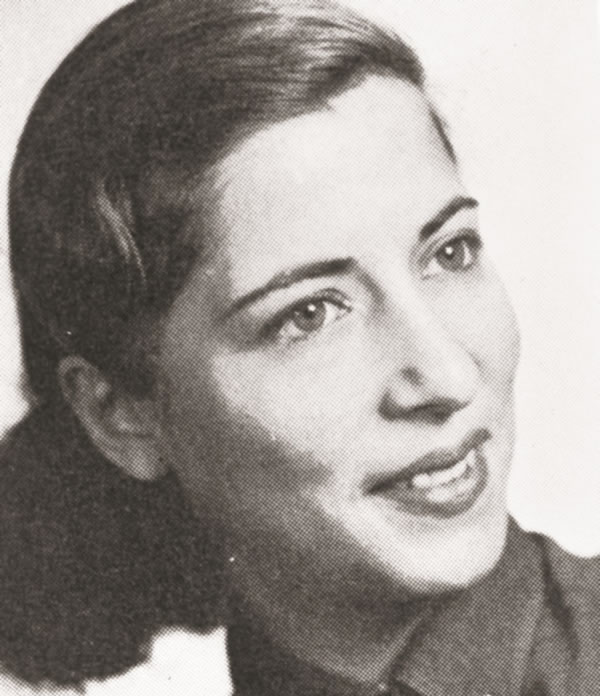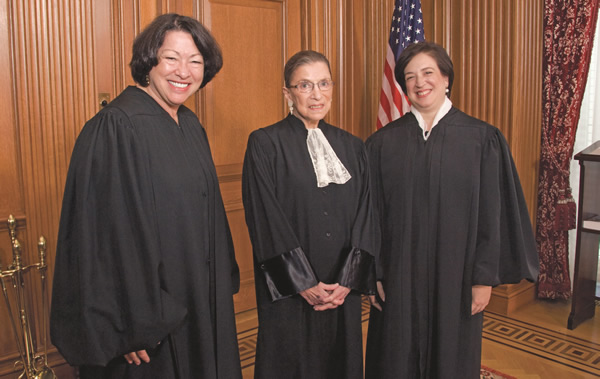Video: Ruth Bader Ginsburg, former President of the Supreme Court of Israel Dorit Beinisch, and NPR's Nina Totenberg at 92Y in October 2014
When President Bill Clinton nominated then-Judge Ruth Bader Ginsburg to the Supreme Court, there was at least one well-placed dissenter.
"She always seems to focus on the fine print rather than on the big picture," wrote Harvard Law School professor Alan Dershowitz in his column in the Washington Times on June 16, 1993. He called her "narrow stickler for procedural regularity who has made little contribution to jurisprudence." After quoting anonymous lawyers who deemed the 60-year-old feminist pioneer "schoolmarmish" and a "difficult person," Dershowitz sneered at Clinton's comparison of Ginsburg to Thurgood Marshall. Unlike that civil rights hero turned justice, Dershowitz said, Ginsburg "had argued a handful of appeals at a time when women's rights were voguish and certainly not career-threatening."
Dershowitz capped off his screed with an extra dose of old-fashioned sexism: "The best thing Judge Ginsburg may have had going for her was that her husband is one of the ablest tax lawyers in the country.... But knowing the tax code and thinking like a tax lawyer should not be the main criteria for promotion to the Supreme Court. A broader vision is required."
Luckily for Ginsburg, no one cared what Dershowitz thought about it, and the Senate confirmed her to the Supreme Court, 96-3. But there is a familiar ring to his dismissal of a woman who had survived personal sorrow and the slammed doors of discrimination to reach the pinnacle of her profession. No vision. A workhorse. Someone with no skin in the game in the work of true equality. A grunt lacking imagination. These are all profoundly gendered characterizations. They evoked the teacher and her pet pedantically at work as the boy genius stews, misunderstood, in the corner, or the mom sternly yoking the wild-eyed dreamers. The critique ignores how much further people who are marginalized by birth have to travel for their revolutionary goals, how much more they have at risk, how harder they have to work to be even step into the door.
 Ruth Bader, Columbia Law Yearbook, photo credit: Columbia Law School
Ruth Bader, Columbia Law Yearbook, photo credit: Columbia Law School
Ginsburg was the first to qualify comparisons of her work with Thurgood Marshall's, noting that unlike Marshall's years as a litigator for racial justice, her life was never at risk. But for a woman who repeatedly lapped her male peers academically but couldn't even get a job after graduation, who became the first tenured woman at Columbia Law School, there was real risk in fighting for "women's lib." It meant upending intimate as well as professional relationships, including her own, between husbands and wives, parents and children. "I think had she not had this persona as this very soft spoken, neat and tidy person, with a conventional life, she would have been considered a flaming radical," her friend Cynthia Fuchs Epstein told my co-author.
Ginsburg was a legal visionary born at a time when girls were expected to marry lawyers. Though she was consistently academically excellent, she did not become a feminist until mid-life, defying the early-bloomer narrative. But when she did, she spent a decade deliberately transforming women's status under the law. It was her vision, as co-founder and head of the ACLU Women's Rights Project, that brought the all-male Supreme Court to a point few of them had ever imagined -- to recognition of women's full humanity under the law. Getting there meant slow and careful strategizing, not stomping into the courtroom and pounding her fist on the bench.
"It took considerable brilliance to find a way to say to the Supreme Court that the Fourteenth Amendment's Equal Protection Clause applied to women," her fellow feminist litigator Eleanor Holmes Norton, now a congresswoman, told me when I interviewed her for Notorious RBG. "You have to ask them to overturn themselves, which is very rare." The upshot was asking a majority of the justices to accept a world where women's civic, political and economic contributions counted, where men could want to be equal partners in caregiving, where reproductive freedom was a condition of equality. She won on all but the final front.
The belated appreciation of Ginsburg as the Notorious RBG requires us to consider that one real form of genius comes as a long game. That means it might come in the form of a woman in her eighties.
Ginsburg is an opera fan. Not long ago, she was asked if she could be any opera diva, who it would be. "I would be the Marschallin in Der Rosenkavalier," Ginsburg replied. "She is a woman who realizes she is no longer young. A transition is occurring in her life. I like the part of the Marschallin because she is a spirited woman, but at the same time she is a wise woman, understanding herself and the circumstances in which she lives." Ginsburg, who has become a voice against the conservative lurch of the court, understands both herself and the circumstances in which she lives as requiring both fierceness and strategy. That's pretty genius.
 Sonya Sotomayor, Ruth Bader Ginsburg, and Elena Kagan, photo credit: Collection of the Supreme Court of the United States, Steve Petteway
Sonya Sotomayor, Ruth Bader Ginsburg, and Elena Kagan, photo credit: Collection of the Supreme Court of the United States, Steve Petteway
Irin Carmon is co-author of Notorious RBG: The Life and Times of Ruth Bader Ginsburg.